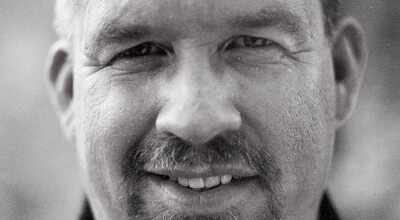Hundreds of today’s rising churches in America embrace Spirit-filled living but avoid the ‘charismatic’ label. Mine’s one of them.
EDITOR’S NOTE: Throughout 2012, we’re celebrating what we call “The 12 Communities of Charisma” and highlighting groups that have made up this magazine’s readership for the past 36-plus years. This month we asked Greg Surratt, president of the Association of Related Churches, to speak for the growing number of Spirit-filled churches who’ve opted to not remain exclusively in traditional Pentecostal/charismatic spheres.
I have always avoided labels. I don’t like them. I never have.
It may be because I’m a product of my generation. We are hesitant about making commitments. And we don’t want to commit to anything too soon. The cafeteria form of food delivery, for example, basically died on our watch. We didn’t want to go to a restaurant where you were shuffled through a single line with one chance of getting it right.
How do I know if I want this salad? There might be a better one a few steps ahead. Or maybe I don’t want a salad at all. Maybe it’s double desserts today. But don’t make me commit too early—it makes me crazy.
My parents had no problem with single-line cafeterias, but I need time and options.
We’re that way about labels too.
“Don’t pigeonhole me. I might not fit entirely or comfortably within your description,” we say.
“But you’re left-handed, aren’t you?” is the reply.
Well, yes, in one sense I am. I write, bat, throw, golf and initiate just about anything that requires skill with my left hand, but I’m uncomfortable with the label. I’m afraid you will pigeonhole me with things that only left-handers do. Or maybe you knew a lefty that you really didn’t like. I don’t want to start our interaction at a deficit based on perceived shortcomings.
Besides, I’m so much more than just ‘left-handed.’ To label me that way is just too limiting. It would be better to think of a digital filing system in which you can put multiple tags on a single entry. Even that image feels uncomfortable. What if someone is slightly mislabeled and, after a search, somehow appears on the wrong list?
That happened to us as a church a few years ago.
We decided at the beginning to avoid all labels. I remember in the early years, when people were looking for a church, they would ask innocent questions, to which we would give more nuanced responses: “Is this a Pentecostal church? Is it charismatic?”
Our response: “What are you looking for, and why do you ask?”
That usually started a conversation. A conversation is often better and more accurate than a one-word label. What “Pentecostal” or “charismatic” means to you may be entirely different from what it means to me. Labels usually have context, and a conversation allows us to explore that.
Refusing labels has led to some interesting moments, though. A few years ago one of the people who keep the lists of the largest and fastest-growing churches in America sent us a form to fill out. (We no longer send in our numbers, but that’s a conversation for another time.)
The form required an answer to the question: “Are you charismatic or noncharismatic?” Two options, take it or leave it; American Christianity boiled down to its smallest denominator.
We left the box unchecked. Later, someone called us to clear up our oversight. We explained our stance on labels and that we felt neither answer adequately described who we were. They insisted we pick one. When we asked why, they explained the computer needed to sort the lists, and those were the only two options.
After we declined, they apparently were forced to choose for us. I remember the consternation in my Pentecostal family when we appeared in the publication sorted with the “non-” group. (Non- is often interpreted “anti-” in the circles I grew up in.)
It wasn’t my choice. I guess they had to pick one since we wouldn’t. So that’s how we landed, but it’s not who we are.
It seems like labels are everywhere.
Are you “purpose-driven” or “seeker-driven” or “sensitive/friendly/hostile”? Are you “Spirit-filled” (or just moderately full)? Are you “full-gospel” or just “half- to three-quarters gospel”?
How about “Reformed” or “reviled”; “gospel-centered” or “gospel-averse”; “cell church” or “church with cells”? Are you “fundamental” or “conservative/liberal”; “emergent” or “convergent”; “submersive” or “just dipping”? You name it.
Why do I dislike labels? Let me count the ways:
They are tainted by past experience: “I knew somebody once who was one of those.”
They tend to divide us into competing camps: “Oh, you’re not _________?” (You get the point.)
They are inadequate in scope: Many of the labels I quoted in the previous paragraphs apply to us, not just one or two.
That being said, other people and other groups will label you. There’s not much you can do about it—and labels are handy for categorizing.
Not long ago we were challenged as a church to figure out what we are the best in the world at doing. We decided to pick several labels that, when strung together, might give a picture of who we think we are. Here’s what we came up with:
“We are a practical, Spirit-filled, nonspooky yet kind of mystical church that meets in multiple locations, done somewhat cheaply.” (If you will define yourself with enough labels, you will probably find that you are the best in the world at what you do.)
Actually, I like this version better:
“We are a worshipping community of believers, becoming more and more like Christ as we seek to serve one another and to share the Good News with those whom God defines as our neighbors.”
It’s not flashy. It won’t satisfy the list-keepers. But it kind of defines who we are.
I wonder which label we’ll rally around in heaven? It probably won’t matter much there. Actually, by avoiding labels, we’re just practicing for eternity.
That’s my story, and I’m sticking to it.
Greg Surratt pastors Seacoast Church in Mount Pleasant, S.C., an early adopter of the multisite church model . Seacoast currently holds 29 weekend worship services in 13 locations. A third-generation Pentecostal, Surratt is also the president of the Association of Related Churches (ARC), a church-planting network with more than 200 congregations across the U.S.
To see a parody about Christians and labels click here.







Leave a Comment
You must be logged in to post a comment.